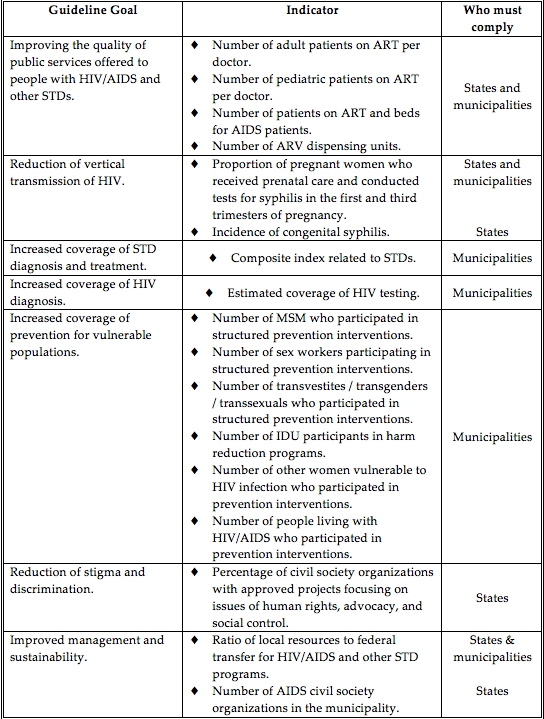Citation:
Abstract:
This case describes the Brazilian National AIDS Program's strategy in the late 2000s to prevent HIV infections. The case is set against the context of a heterogeneous, concentrated epidemic and decentralized public health system that guaranteed access to care and treatment. The case traces the nation's response to HIV from the late 1980s through 2009 via a human rights framework, highlighting the cooperation with civil society. Readers are challenged to understand the relationships between HIV/AIDS prevention and treatment, decentralization and sustainability.
Teaching Note available through Harvard Business Publishing.

Decentralization Policy M&E Indicators. Source: National Department of STD, AIDS and Viral Hepatitis. (Exhibit 14 from "HIV/AIDS in Brazil: Delivering Prevention in a Decentralized Health System" case.)
Learning Objectives: Students should understand the tradeoffs involved in a decentralized governance structure, the levers a central government department can pull to influence local health care delivery in a decentralized health system, and how civil society advocacy contributes to program sustainability.
Keywords: Human rights, HIV prevention, Sustainability, Role of civil society, Strategy